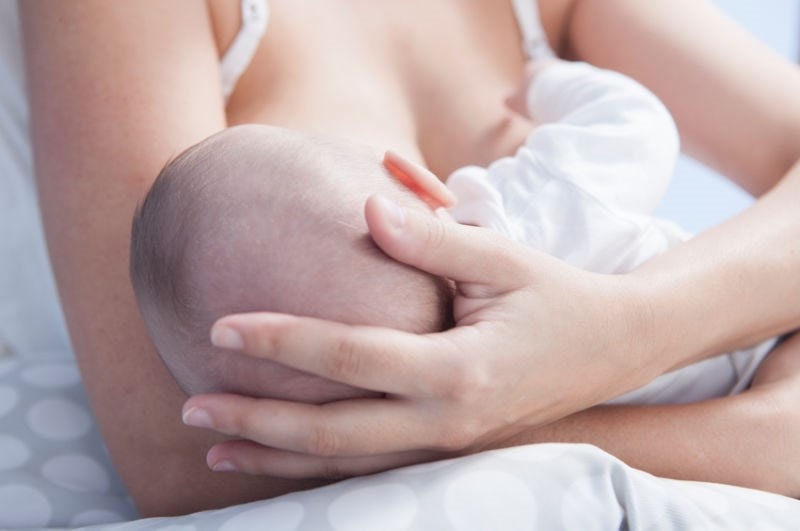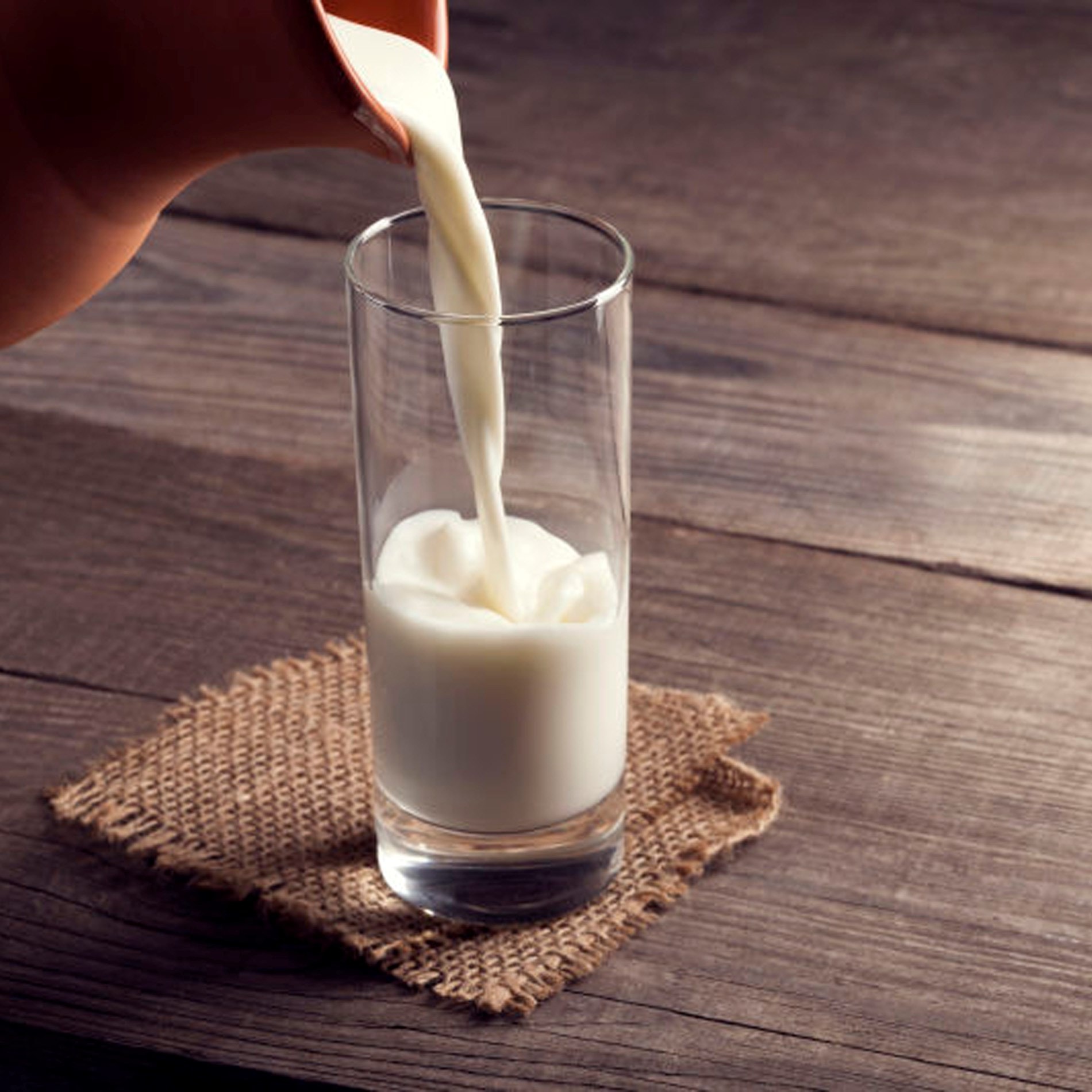How the infant gut develops
We know that gut diversity in infants is important for helping babies to build up immune defences against common health issues, including digestive issues, colic, allergies, eczema and poor immunity. In this article we will look at the development of the infant microbiome and the differences in the development of the infant microbiome associated with caesarean births.
- Does the microbiome develop in the womb?
- The infant microbiome develops in three stages
- Breastfeeding and the infant gut
- Type of birth impacts the infant microbiome development
- Caesarian birth and the infant immune system
- Environment and the infant gut microbiome
A recent study1, however, goes past the ‘why’ and has raised the question of ‘how’ the gut microbiota is developed to contain an array of diverse gut microorganisms, to support health and reduce the risk of future health problems.
So, what factors contribute to a new-born baby's microbiome (head over to the Probiotics Learning Lab) development as they progress from infancy to childhood? And how long does this take to become established?

Does the microbiome develop in the womb?
New and groundbreaking evidence suggests that the development of a child's gut microbiota (visit the Probiotics Learning Lab to find out more) may actually begin in the womb. Previously, it was believed that the womb was a sterile environment and that a child’s first contact with bacteria was during vaginal birth and contact with the environment it was born into. However, a growing body of evidence suggests that this may not be the case.
The first evidence of this theory appeared in the studies of a research team at the Complutense University of Madrid. Lead researcher, Esther Jiménez and her colleagues labelled bacteria with a genetic marker and fed milk containing the bacteria to eight pregnant mice. The mice had their litters via caesarean section in a sterile environment and the meconium – the first faeces - of each newborn was collected. The research team found the genetically marked bacteria in the meconium from every newborn, suggesting that the bacteria had transferred from the mother's gut to that of the fetus during pregnancy.
More recently, research carried out at the University of Valencia in Spain has revealed the same outcome in humans. Pilar Francino and her colleagues collected and froze the meconium of 20 newborn babies and then analysed it for bacterial DNA. The team not only identified bacteria in the meconium – which was previously thought to be sterile – but they also found that the colonies were well developed. Around half of the samples were dominated by lactic acid producing bacteria, while the other half mostly contained enteric bacteria, such as the Escherichia coli species.
Further research is needed to ascertain how the bacteria are able to pass from the mother to the child, but researchers theorise that they transfer via the placenta.
Although these findings aren’t yet conclusive, the potential health implications are significant. If a mother can influence the composition of her baby’s microbiota before it’s born, it’s believed that she could significantly lower disease risk. Altered or disrupted development of the gut microbiota has been linked to numerous disorders, ranging from Irritable Bowel Syndrome (IBS) to obesity, and even mental health conditions (read our blog post on probiotics and mental health).
Pilar Francino commented on her findings, “If we are able to define which bacteria are the most important early on, and which have implications for later health and immune disorders, then we could try to make sure the bacteria are there before the fetus is born.”
James Kinross of the Imperial College London also commented, “My view is that the first bacteria are very likely to influence the development of an infant’s gut and immune system…Standard medical teaching is that the fetus is sterile, the notion that gut development is influenced by maternal bugs will come as a shock. It’s a completely new way of thinking about human disease.”
The infant microbiome develops in three stages
Researchers at Baylor College of Medicine (Houston, USA) have explored the early journey towards a thriving and established gut microbiota and indicate how this foundation may help impact health in later life.
The study included 903 children in six locations across Europe and the U.S., aged from three to 46 months. The study analysed an enormous 12,005 stool samples from the infants. From this analysis, they found that there are three distinct phases in a child’s gut colonisation, starting from 3 months to 4 years of age. These include:
A developmental phase (3-14 months)
A transitional phase (15-30 months)
A stable phase (31 months onwards)
So what lifestyle factors contributed to these crucial years of gut development?
The main factors:
Breastfeeding and the infant gut
During the initial ‘developmental phase’, researchers found that breastfed or partially breastfed infants had significantly higher levels of Bifidobacterium, in particular Bifidobacterium breve & Bifodbacterium bifidum. As probiotic experts, we know all about this beneficial genus of bacteria and are very familiar with its benefits. There has been an increasing amount of evidence2,3,4,5 highlighting the importance of breastfeeding, as it contains crucial bioactive components for gut development such as prebiotics, immune factors, nutrients and beneficial microbes. To find out more about probiotics and breastfeeding, head over to the Probiotics Learning Lab.
Type of birth impacts the infant microbiome development
Birth mode also significantly impacted the microbiome. Vaginal birth resulted in a temporary increase in Bacteroides, and this bacterial genus was associated with increasing gut diversity and maturation of the microbiome.
The prevalence of Caesarian sections has increased in industrialised countries significantly over recent decades. For the scientific and medical communities this is worrisome, as C-section deliveries have been associated with numerous health issues for children, including respiratory distress after birth, greater risk of infection, as well as long term problems such as the development of asthma in later life.
A natural vaginal birth exposes babies to the probiotic bacteria of the birth canal, which plays an important role in the development of the immune system and gut microbiota. Maureen Jenkins, from the charity Allergy U.K, explains: “During a natural birth the baby travels slowly down the birth canal where it ingests normal bacteria, which has been shown to aid a healthy immune response and protect against allergy.”
A study, carried out by a research team at the Henry Ford Hospital in Detroit, U.S.A, observed a total of 1,258 newborn babies and assessed their health at one month, six months, one year and two years of age. The research team began by analysing umbilical cord and stool samples from each newborn, blood samples from both parents, the mother’s breastmilk, as well as levels of dust at the families’ homes.
The research team also took into account any family history of allergy, the keeping of household pets, tobacco smoke exposure, baby illnesses, and the use of medication.
The results of the study revealed that children born via C-section were 5 times more likely to become allergic to household triggers such as dust mite droppings, and dander, or the dead skin shed by dogs and cats by the age of two years old.
This research lends further credence to the ‘hygiene hypothesis’ which links the childhood development of allergies to an over-clean environment, or under-exposure to micro-organisms in early life. Lead researcher, Dr. Christine Cole-Johnson, commented on this point:
“This further advances the hygiene hypothesis that early childhood exposure to micro-organisms affects the immune system’s development and onset of allergies.”

Caesarian birth and the infant immune system
Many clinical trials in recent years have drawn strong correlations between a child's mode of delivery and the development of their microbiota and immune system. Now a new study from the Netherlands has added to those findings. The group of Dutch researchers say that, depending on the mode of a child's birth, they are either exposed to the mother's natural microbiota via the vaginal canal, or they are exposed to skin and environmental bacteria through Caesarian section. This early exposure is thought to have a large impact on how our microbiota develops and how our immune systems mature, though the time frame for these developments are largely unknown.
In this recent study, Dutch researchers were keen to investigate how C-section births specifically impacted on the bacteria in the upper respiratory tract. This is a natural niche area of the body for opportunistic pathogens and is often the origin of recurrent infections. In previous studies, large sampling of children revealed a highly dynamic composition of bacteria in the upper respiratory tract. The team were keen to find out how early exposure to bacteria after birth impacted on this area of the body specifically, and how vaginal or C-section deliveries created different bacterial communities.
The research team observed a group of 102 healthy children from birth until 6 months of age. The team found that the development of the respiratory bacteria starts developing straight after birth. Interestingly, within the first day of life all the children had a Streptococcus viridans-predominated profile, regardless of their delivery. However, during the first week of life rapid differentiation developed between the groups. Initially within most infants, Staphylococcus aureus predominated followed by other communities. Those children born via C-section showed a delayed overall development of microbial communities and specifically reduced health-associated microbes which were present in children born naturally. The research team thinks that this has an influence on respiratory health later in life.
So, it seems that the mode of delivery not only has associations with the composition and diversity of the gut microbiota, but studies such as this show it may also impact on microbial communities elsewhere in the body.
Environment and the infant gut microbiome
Variants ranging from geographical location, to exposure to dogs (see Probiotics Learning Lab), also had an impact on microbial development and its symbiotic relationship with our immune system.
Moreover, these first phases of gut development are important not just during early life. Research is highlighting our microbial foundations may be associated with a range of potential diseases and health issues in later life, including obesity, asthma and allergies. For more information on this, check out our Learning Lab for past studies on the importance of the gut microbiome in early life.
Also, it’s important to note that gut development doesn’t fully stop at 2.5 years of age - our microbiomes are constantly challenged throughout life from stimuli like antibiotics (head over to the Learning Lab to find out more), stress, and diet, to name a few. We are also seeing significant changes in our microbiomes as we reach the elderly life stage, with an overall decrease in diversity and a reduction in Bifidobacteria.
Now we know why - and more recently, how - good bacteria colonise in the gut, what can we do with this information? Senior author Joseph Petrosino said:
“[In this study] We showed that the first year of life is a key phase for the development of the microbiome, with the receipt of breast milk being the main factor that influences microbiome development over this period.”
However, as a result of certain mitigating circumstances, options for mothers such as breastfeeding and vaginal birth aren’t always possible. In lieu of these natural occurrences that contribute to an infant or child’s gut diversity, the good bacteria could be supplemented in the mother and baby to help support what would otherwise be missed. Furthermore, infants who were breastfed or vaginally birthed may also benefit, by boosting and maintaining their levels of friendly bacteria. This study highlights just how important our developmental stages are, and how fascinating the human microbiome is.
You may also be interested in the following articles:
Vaginal Fluid Swabs and C-sections
Probiotics lower risk of postnatal depression in recent study
Probiotics during pregnancy could reduce risk of childhood obesity
Or you might like to read this blog, over in the Probiotics Learning Lab:
Microbirth: New film highligfhts importance of vaginal birth for babies' microbiome
References
Stewart, C. J., et al. (2018). 'Temporal development of the gut microbiome in early childhood from the TEDDY study'. Nature, 562: 583–588
Heikkila, M.P. and Saris, P.E., (2003). Inhibition of staphylococcus aureus by the commensal bacteria of human milk. Journal of Applied Microbiology. 95:471-478
Bode, L., (2012). Human milk oligosaccharides; every baby needs a sugar mama. Glycobiology. 22 (9): 1147-1162
Solis, G., et al., (2010). Establishment and development of lactic acid bacteria and bifidobacterial microbiota in breast milk and the infant gut. Anaerobe. 16 (3): 307-310
Field, C., et al., (2005). The immunological components of human milk and their effect on immune development in infants. The Journal of Nutrition. 135 (1): 1-4
Research presented at the American Academy of Allergy, Asthma and Immunology Annual Meeting 2013.
Bosch, A, et al (2016) Development of Upper Respiratory Tract Microbiota in Infancy is Affected by Mode of Delivery. EBioMedicine.
Research in Microbiology, DOI: 10.1016/j.resmic.2007.12.001

